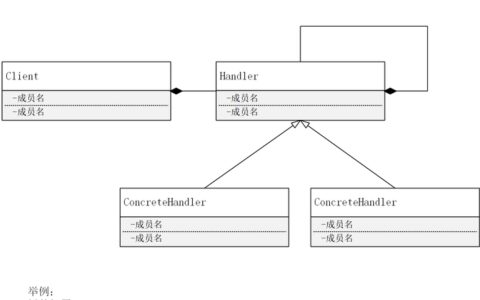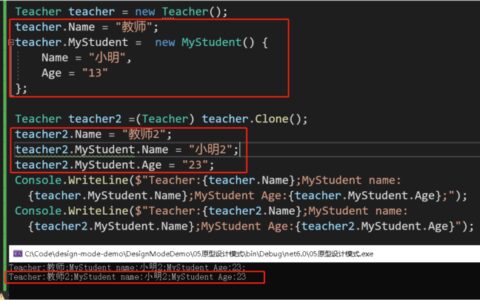需要说明:java跟python在思维模式上并不一样,java利用接口以及多态可以实现很多抽象上的东西,而python不行,其实以下很多设计模式写法并不适用也没有必要,更多是为了对比和帮助理解这些设计模式,毕竟设计模式的核心是解耦。
1.单例模式
#-*- encoding=utf-8 -*- class Singleton(object): def __new__(cls, *args, **kw): if not hasattr(cls, '_instance'): cls._instance = super(Singleton, cls).__new__(cls, *args, **kw) return cls._instance a = Singleton() b = Singleton() print id(a) print id(b)
2.模板模式
#coding:utf-8 class CaffeineBeverageWithHook(object): def prepareRecipe(self): self.boilWater() self.brew() self.pourInCup() if self.customerWantsCondiments(): self.addCondiments() def brew(self): print "start brew." def addCondiments(self): pass def boilWater(self): print "start boilWater." def pourInCup(self): print "Pour into cup" def customerWantsCondiments(self): return False class CoffeeWithHook(CaffeineBeverageWithHook): def brew(self): print "Dripping coffee through filter." def addCondiments(self): print "Add Sugar and Milk." def customerWantsCondiments(self): return True if __name__ == '__main__': coffeeWithHook = CoffeeWithHook() coffeeWithHook.prepareRecipe()
3.适配器模式
#coding: utf-8 class Target(object): def request(self): print "this is target.request method." class Adaptee(object): def special_request(self): print "this is Adaptee.special_request method." class Adapter(object): def __init__(self): self.special_req = Adaptee() def request(self): self.special_req.special_request() if __name__ == '__main__': adapter = Adapter() adapter.request()
4.策略模式:在策略模式中遵循依赖倒置原则,使得策略在代码运行时生效
# -*- coding: utf-8 -*- class IStrategy(object): def doSomething(self): return class ConcreteStrategy1(IStrategy): def doSomething(self): print "concreteStrategy 1" class ConcreteStrategy2(IStrategy): def doSomething(self): print "concreteStrategy 2" class Context(object): def __init__(self, concreteStrategy): self.strategy = concreteStrategy() def execute(self): self.strategy.doSomething() if __name__ == '__main__': print "-----exec concreteStrategy 1-----" context = Context(ConcreteStrategy1) context.execute() print "-----exec concreteStrategy 2-----" context = Context(ConcreteStrategy2) context.execute()
5.工厂模式
#coding:utf-8 import sys reload(sys) sys.setdefaultencoding("utf-8") class XMobile(object): def __init__(self, factory): self._factory = factory def order_mobile(self, brand): mobile = self._factory.create_mobile(brand) mobile.special_design() mobile.hardware() mobile.software() mobile.combine() mobile.box() class MobileFactory(object): def create_mobile(self, brand): if brand == "Huawei": mobile = HuaweiProductLine(brand) elif brand == "Xiaomi": mobile = XiaomiProductLine(brand) elif brand == "Meizu": mobile = MeizuProductLine(brand) return mobile class MobileProductLine(object): def __init__(self, brand): self.brand = brand def hardware(self): print "准备硬件" def software(self): print "准备软件" def combine(self): print "合并手机" def box(self): print "封装手机" class HuaweiProductLine(MobileProductLine): def __init__(self, brand): super(HuaweiProductLine,self).__init__(brand) def special_design(self): print "使用Haisi CPU" class XiaomiProductLine(MobileProductLine): def __init__(self, brand): super(XiaomiProductLine,self).__init__(brand) def special_design(self): print "使用MIUI" class MeizuProductLine(MobileProductLine): def __init__(self, brand): super(MeizuProductLine,self).__init__(brand) def special_design(self): print "使用Flyme" if __name__ == '__main__': mobileFactory = MobileFactory() xmobile = XMobile(mobileFactory) xmobile.order_mobile("Huawei")
6.观察者模式
#coding:utf-8 class Subject(object): def __init__(self): self.obs_list = [] # observer对象 def addObserver(self, obs): self.obs_list.append(obs) def delObserver(self, obs): self.obs_list.pop(obs) def notifyObserver(self): for obs in self.obs_list: obs.update() def doSomething(self): return class ConcreteSubject(Subject): def __init__(self): super(ConcreteSubject, self).__init__() def doSomething(self): self.notifyObserver() class Observer(object): def update(self): return class ConcreteObserver1(Observer): def update(self): print "观察者1收到信息,并进行处理。" class ConcreteObserver2(Observer): def update(self): print "观察者2收到信息,并进行处理。" if __name__ == '__main__': concreteSubject = ConcreteSubject() concreteSubject.addObserver(ConcreteObserver1()) concreteSubject.addObserver(ConcreteObserver2()) concreteSubject.doSomething()
7.外观模式
外观模式是将一系列接口进行封装,使得外层调用更加方便,因此不作说明
to be continue...
本站文章如无特殊说明,均为本站原创,如若转载,请注明出处:[python]设计模式 - Python技术站

 微信扫一扫
微信扫一扫  支付宝扫一扫
支付宝扫一扫 

